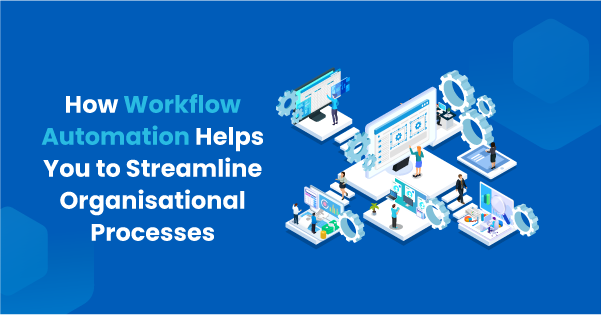Workflow automation has become increasingly popular in recent years as it has proven to be a game changer for many organisations.
With the use of workflow management software such as UniFi, organisational structures and business processes that were once cumbersome and labour-intensive can now be streamlined.
To give you an idea, UniFi can automate routine tasks and provide a central repository for all your data, making it easy to track progress, approve tasks and identify bottlenecks in your workflows.
If you’re looking to increase efficiency and productivity in your operations this year, workflow automation could be the solution – whether it’s financial management, accounting, HR, procurement, or any other operation.
What is Workflow Automation?
For every business process, there is typically a workflow that is required to complete it. These workflows can often be complex and time-consuming to manage when they rely solely on manual tasks for completion. Many organisations also experience a high proportion of errors for the same reason.
Workflow automation is the evolution of these processes, replacing the manual component with intuitive workflow solutions that are fast, accurate, and relatively inexpensive. This hands-off approach makes it easy to manage complex business processes and streamlines repetitive and time-consuming work.
What Kind of Workflows Benefit from Automation?
There are many different processes that can be made more efficient and effective with workflow automation. Some common examples include:
Purchasing workflows such as:
- Supplier onboarding
- Requisitioning
- Purchase ordering
- Purchase invoice approval
- Goods/services receipting
Sales workflows such as:
- Quotations
- Sales Orders
- Sales Invoicing
- Inventory Management
- Know Your Customer
Financial accounting processes such as:
- Exchange rates
- Journal approvals
- Intercompany accounting
- Document management
- Budgeting and forecasting
Compliance workflows such as:
- HMRC
- SOX compliance
- Internal auditing
- External auditing
- Reference data management
HR processes such as:
- Employee onboarding
- Employee expense management
- Business credit card expense management
- Employee asset management
- Enterprise asset management
- Employee offboarding
Other candidates for automation include business intelligence and reporting (both financial and regulatory), integration of multiple business systems, and any business process that’s time-consuming, repetitive, and manual.
The Benefits of Automated Workflows for Your Organisation’s Processes
- Cost-savings: Workflow automation can minimise the requirement for costly hardware, reduce the need for human labour, minimise software upgrade costs, and decrease consulting fees as the process becomes more streamlined and efficient.
- Simple integration with existing systems: Automated workflows are designed to be easy to integrate – UniFi can seamlessly integrate with your existing ERP, CRM, HR, FMS, and other core systems to create a more efficient performance.
- Enhancing existing processes and policies: The sophisticated nature of automated workflows provides an upgrade to existing organisational processes and policies and offers the opportunity to better tailor them to the needs of the business.
- Driving productivity: Automation is an ‘efficiency’ tool and one that is designed to direct resources to the right areas of the business and to be used correctly. Automating workflows removes the potential for errors and issues that can bring productivity to a halt, and enables better overall management to produce more impressive results.
- Reliability: Automation not only improves productivity and cost-effectiveness but also provides reliability in supporting your business processes.
- Reducing human error: Errors are almost inevitable in a process operated mainly by humans. Automation helps in eliminating every form of human error and improving accuracy in the process.
- Increasing efficiency: Automation allows for tasks to be completed in a shorter amount of time and with less effort, thus increasing overall efficiency within the organisation.
- Improving consistency: Automation ensures that tasks are completed in the same way every time, leading to improved consistency in the process and the overall output.
- Improving scalability: Automation allows for an increase in production without the need to hire additional staff, thus improving scalability.
- Enhancing data analysis: Automation can lead to improved data collection and analysis, providing valuable insights for business decisions.
- Improving customer service: Automation can lead to faster and more efficient processes, leading to improved customer service.
- Reducing downtime: Automation can help reduce downtime caused by breakdowns and maintenance, leading to increased productivity.
- Improving flexibility: Automation allows for the easy modification of processes, thus improving flexibility in response to changing business needs.
Conclusion
In conclusion, workflow automation is changing the way business operations are managed, and it is likely that your competitors are already implementing it. With its many benefits, it’s worth considering adopting it in your organisation as well.
Implementing automation is easier and cheaper than you think. Talk to us today and we’ll help you get started!


